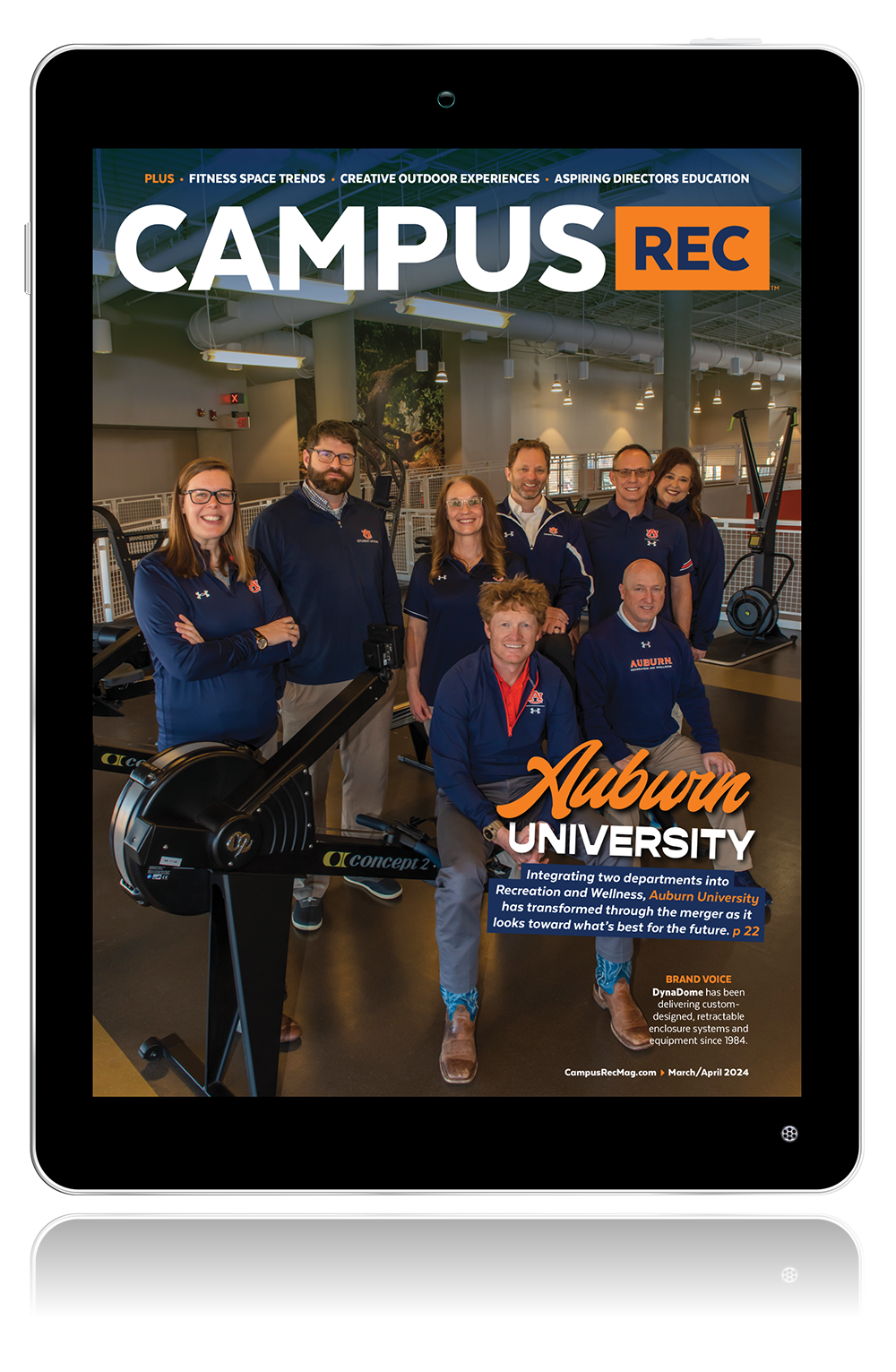This issue, Mark Ferguson, the associate dean of Students for Well-Being and executive director of Campus Recreation, and Tony Gregory, the assistant director of Well-Being and Fitness at Ohio University, share advice on mental health and their Well-Being Coaching program.
How is Ohio University Campus Recreation playing a role in the mental health crisis?
MF: Ohio Campus Recreation has been leading an effort to infuse well-being throughout our Division of Student Affairs and the university. First, we have changed the lens with which we view our work and put the focus on well-being. Program offerings, student employment experiences and campus partnerships are all being designed with an understanding to how it supports the holistic well-being of our students and community.
Can you describe one of your programs in this area of well-being?
TG: Well-Being Coaching is a free one-on-one, individualized guidance program that provides opportunities for students to gain awareness and learn strategies to help them set realistic goals tailored to their lifestyle. The goal of Well-Being Coaching is to support students along their well-being journey and to assist them in creating goals to fit their lifestyle, passions and needs. We help create an action plan with them to address these well-being goals and aim to be a supportive factor in their success. Additionally, we provide the students with resources should their needs fall outside our scope of practice, and we work to educate them on the wide range of services offered here at Ohio University.
Why has Well-Being Coaching been successful, especially when it comes to mental well-being?
TG: This service has been particularly successful when it comes to mental well-being because we have been able to hire and train six volunteer Well-Being coaches who are committed to and passionate about emotional well-being, which is one of the branches we train our coaches to focus on when they are working with students at Ohio University through the Well-Being Coaching program. I feel this is one of the major reasons this service has been successful when it comes to serving mental well-being.
What has it taken to build successful well-being offerings?
MF: Our success in supporting well-being has been driven by an openness to understanding our work through a different lens. That has led us to adopting a framework for well-being we feel is more inclusive and comprehensive to our work as a whole and fosters connections across units. Successful well-being offerings also acknowledge well-being can be unique to an individual, and one program or approach does not fit all.
What advice can you give on impacting the mental health crisis?
MF: First, learn and understand the impacts of your work on mental health and well-being, and start to communicate your work through that lens. Campus rec is often reduced to the benefits of physical activity, but an understanding of well-being creates room for the full scope of our impact. Then, engage with and listen to your campus partners. Listen for ways you can support the work of others and where efforts complement each other. For example, can you amplify the communications of your counseling center? And does it know the opportunities available through campus rec? There are so many “little things” that can be done with your current resources.










